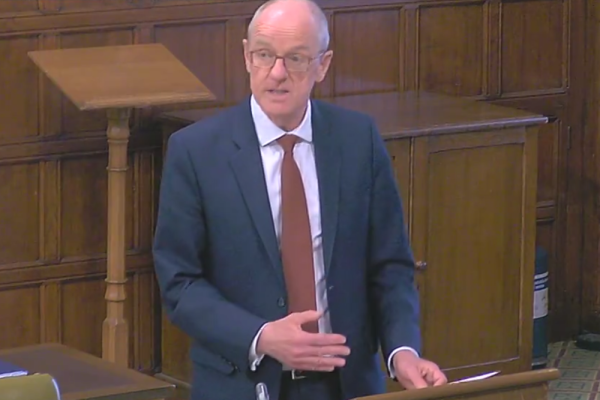Politicians spoke about the importance of everyday numeracy
It was fantastic to see the discussion continue, with members of several different political parties speaking about a range of maths related topics, including the importance of everyday numeracy for everything from planning a daily routine to managing finances.
Maths education in schools was also discussed in parliament
Also covered was the need for both children and adults to be confident with numbers, with children’s maths education in schools discussed in detail, as well as ways adults can improve their understanding of numbers.
It’s not too late to improve your numeracy
The consensus was that everyday numeracy is essential for people of all ages and it’s never too late to improve, regardless of your past experiences with maths.
Watch the Westminster Hall National Numeracy Day Debate 2023 from 15:00:00 here.
Bob Blackman MP, Harrow East, Conservative, said:
“Whilst we obviously learn at school various different aspects of maths, it is important to remember that the purpose is to inspire everyone, whatever age, gender or socioeconomic background, to possess confidence and skills to competently understand numbers and be able to apply them in our day-to-day lives. We do not use trigonometry or Pythagoras’ theorem when doing the weekly food shop, but basic numeracy crops up all the time.
“On National Numeracy Day, we are aiming to break the taboo that maths is scary, not cool or impossible. Indeed, it is the gateway to many amazing opportunities.”
Peter Grant MP, Glenrothes, SNP, said:
“People go through their entire lives avoiding particular occasions that might show them up or might make them think they’re looking silly because their basic numeracy skills are not as good as they would like them to be. For people of my age, I think some of it is to do with bad experiences at school. Certainly when I went to school, teachers had a habit of humiliating any pupil that was struggling with any part of their work. Thankfully, that doesn’t happen now.
“The contribution that is being made by teachers at every stage of education in Scotland and the rest of the United Kingdom is making a big difference in helping young people to learn the essential skills, and there is no doubt that numeracy is one of the most essential of those.”
Shadow Schools Minister Stephen Morgan MP, Portsmouth South, Labour, said:
“While people sometimes make light of the fact that they are bad at maths, it really should not be a laughing matter. Poor numeracy skills impact people’s lives in a real way. They can impact personal finances too, as we’ve heard in the debate today, and leave people more susceptible to fraud and amassing debt. Skills learned in schools are later needed when it comes to valuing a mortgage deal, planning credit payments, taking out loans or saving for retirement. As the member for Harrow East said, National Numeracy also estimates that poor numeracy could cost the economy up to £20 billion per year, with a widespread lack of confidence with numbers contributing to sluggish productivity.”
The Minister for Schools, Nick Gibb, said:
“Maths is crucial. We use it every day, whether at work, managing households, or understanding loans and credit. Without a solid foundation in the subject, young people risk being shut out of the careers to which they aspire, and the life they want to lead. Adults with poor numeracy are more than twice as likely to be unemployed as those with competent numeracy at age 30. That is why the Prime Minister announced last month new details of how we will transform our national approach to maths. We will change the way the system works so that everyone will study some form of maths to 18.”







